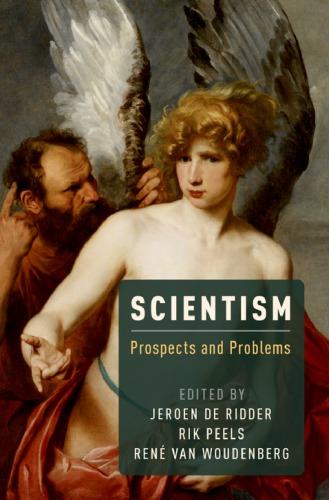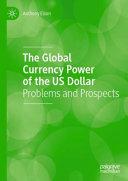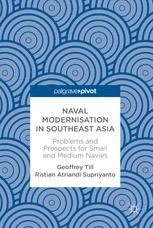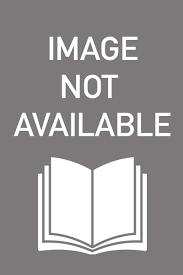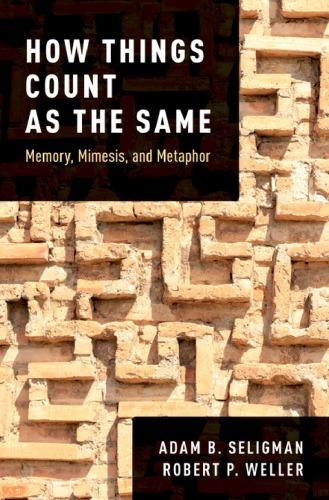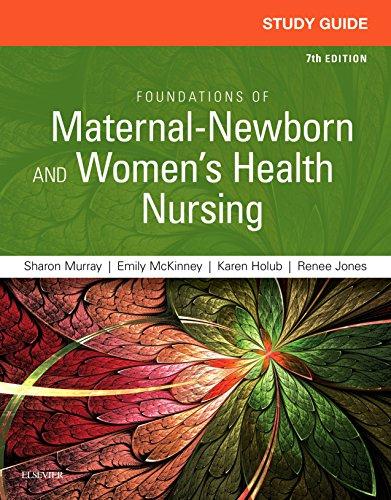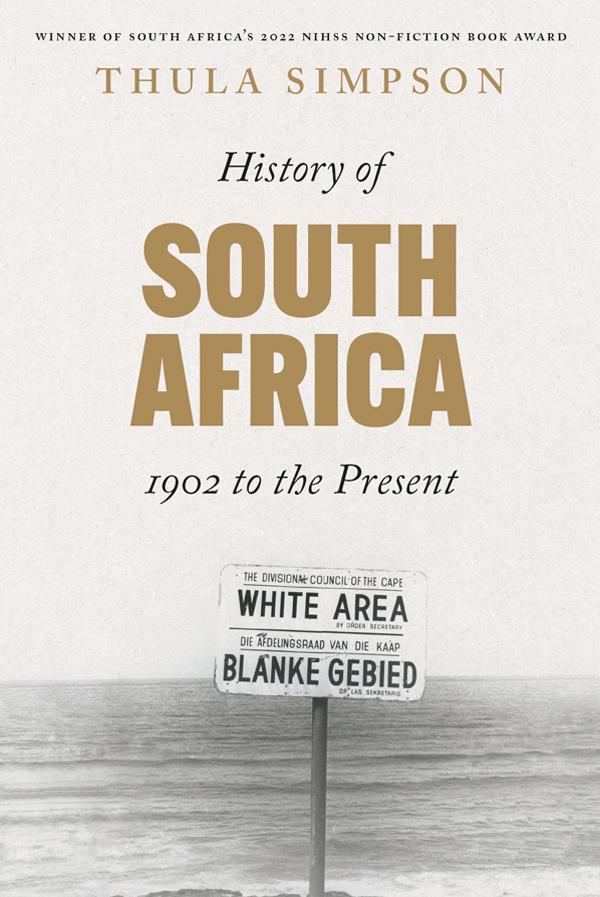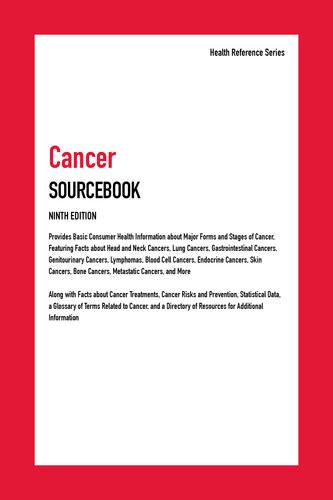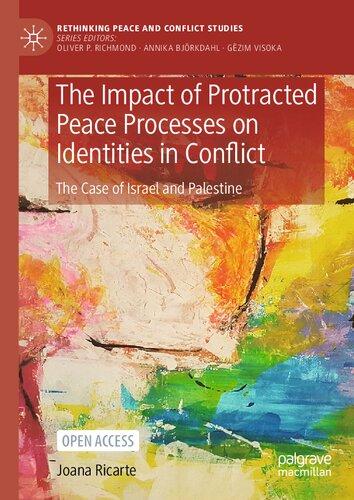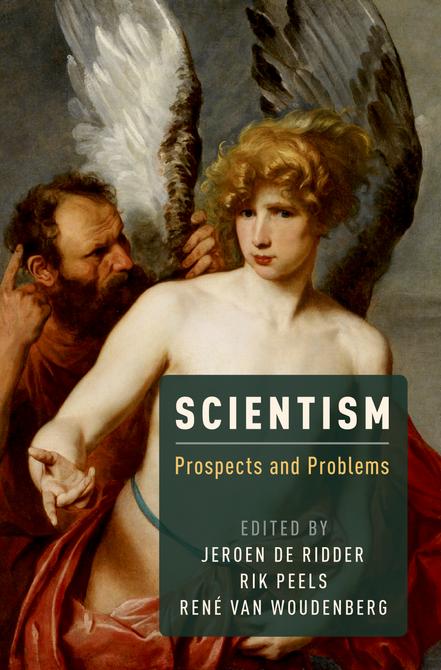SCIENTISM
INTRODUCTION
Putting sC ientism on the Philoso P hi C al a genda
René van Woudenberg, Rik Peels, and Jeroen de Ridder
I.1 Riddles of Scientism
This book discusses prospects and problems of scientism . Scientism is, roughly, the view that only science can provide us with knowledge or rational belief, that only science can tell us what exists, and that only science can effectively address our moral and existential questions.1 As Alex Rosenberg says, scientism “is the conviction that the methods of science are the only reliable ways to secure knowledge of anything,” the view that “science provides all the significant truths about reality” (Rosenberg 2011: 6–7). Or, as Leslie Stevenson and Henry Byerly have it, it is “the view that knowledge obtainable by scientific method exhausts all knowledge . . . that whatever is not mentioned in the theories of science does not exist or has only a subordinate, secondary kind of reality” (Stevenson and Byerly 2000: 246–247). 2 Scientism can thus stand for a number of exclusivity claims about science.
1. Rik Peels’s chapter in the present volume identifies several versions of scientism in more systematic detail.
2. Similar definitions abound in the literature: “Scientism is the belief that all valid knowledge is science. Scientism says, or at least implicitly assumes, that rational knowledge is scientific, and everything else that claims the status of knowledge is just superstition, irrationality, emotion, or nonsense” (Hutchinson 2011: 1). And: “A totalizing attitude that regards science as the ultimate standard and arbiter of all interesting questions; or alternatively that seeks to expand the very definition and scope of science to encompass all aspects of human knowledge and understanding” (Pigliucci 2013: 144).
More often than not, scientism is adopted implicitly and at best half-wittingly. The view is usually not proposed or adopted on the basis of carefully crafted and explicitly formulated arguments in its favor. It is a view that appears to be more “in the air” than pinned down on paper as a philosophical position.3 Moreover, friends of the view (or rather family of views) only rarely embrace the label “scientism.” Thus, we have a view, scientism, which is widely but often implicitly adopted, that is rarely stated explicitly or defended rigorously, and that mostly does not go by the name “scientism.” These are the riddles of scientism. Fortunately, there is a ready solution to at least the last of these riddles. “Scientism” used to figure exclusively as a term of abuse. Labeling a view as “scientistic,” or a person an advocate of scientism, was to issue an accusation, or worse, to make an insult. Susan Haack, for example, describes “scientism” as “an exaggerated kind of deference towards science, an excessive readiness to accept as authoritative any claim made by the sciences, and to dismiss every kind of criticism of science or its practitioners as anti-scientific prejudice” (Haack 2007: 17–18). It is clear that no one will accept this notion of “scientism” as an adequate characterization of their own views, as no one will think that their deference to science is exaggerated, or their readiness to accept claims made by the sciences is excessive.
Haack surely latches on to a standard, pejorative, use of “scientism.”
Sometimes, however, active attempts are made to rid words of their pejorative overtones and to re-appropriate them as badges of honor. An example is “impressionist,” a term once used to express abhorrence about a characteristic style of painting, but soon consciously self-applied with pride. What we see nowadays—and this is the solution for one of the riddles of scientism—is that something similar is happening with “scientism.” Various philosophers selfconsciously present themselves as advocates of scientism, for instance, Alex Rosenberg and James Ladyman—both of whom contribute to this volume. It is in this use that we are interested: the problems and prospects of scientism as a serious philosophical position, rather than a derogatory label used to dismiss one’s opponents with a quick gesture.4,5
3. The subtitle of another recent collection of essays devoted to a critical discussion of scientism even goes so far as to label scientism “the new orthodoxy” (Williams and Robinson 2015).
4. We do not mean to accuse Haack of this. Her carefully argued criticisms of scientism are anything but a quick dismissal of it.
5. This recent use of scientism as a more neutral term or a badge of honor is one reason why we think scientism merits attention now. While older pioneering works on the topic (such as
This volume aims to contribute to understanding scientism as an explicitly formulated position by giving an overview of the claims and ideas that constitute the view, by signaling the varieties of scientism and their interrelations, by presenting and discussing arguments in favor of scientism, as well as by presenting criticisms of the view(s).
In this introduction, we explain why scientism is an important and timely topic, both inside and outside of philosophy, and both inside and outside of academia. Next, in order to bring scientism into sharper focus, we sketch some of the (pre)history of scientism, explain what advocates of scientism take science to be, summarize the most important argument that is used to buttress scientism, and give an overview of how critics have responded to it. Finally, we present an overview of the coming chapters.
I.2 Why Scientism Should Be on the Philosophical Agenda
There are at least five reasons why an in-depth discussion of scientism is needed. First, scientism, if true, has devastating epistemic consequences. If science is our only source of knowledge or rational belief, we do not know and do not rationally believe many of the things that we take ourselves to know and rationally believe. Most people take themselves to know and rationally believe lots of things about their mental life through introspection; and they also assume they know and rationally believe a great number of things about their everyday experiences; and many also presume they have rational beliefs or even knowledge about political, moral as well as religious matters. To the extent that such presumed knowledge and rational belief is not supported by science—nor capable of being so supported—it would all have to go. Much of our ordinary epistemic self-understanding is at stake here.
Second and related, if only science provides rational belief and knowledge, then the humanities don’t have anything to offer that is of epistemic value. Thus, no rational belief or knowledge is to be found in the interpretations of texts; in accounts of historical developments; in philosophical theories about, for example, value, personhood, and rationality; in aesthetics or art theory, linguistics, and so on. At the very least, then, scientism should lead to a radically different self-interpretation of the humanities. For what is it one
Sorrell 1991, Trigg 1993, and Stenmark 2001) contain much that is valuable and interesting, they did not anticipate this development.
is doing in studying and analyzing something when one holds that there is no knowledge or rational belief to be gained from doing so? But maybe scientism implies that more drastic measures are in order. Since these academic disciplines don’t deliver knowledge or rational belief, they should perhaps be banned from universities altogether. Obviously, that would have radical implications for future research and higher education.
Third, the truth of scientism would have severe repercussions for a number of well-established social practices. We single out two: the legal and the psychiatric practice. Common sense tells us that psychologically healthy human beings have free will and bear responsibility for their freely performed actions. However, a vocal minority urges that science has given us strong reason to deny that we have free will. But if belief in free will lacks positive epistemic standing, then it is high time for us to revisit our legal practice of holding people responsible for at least some of their actions, and of assessing their behavior on the basis of common-sense beliefs about freedom and responsibility. Perhaps we should treat humans as beings whose behavior is to be manipulated so that the odds of good behavior are maximized and those of bad behavior minimized and abandon our talk of crime and punishment. Second, in psychiatry scientism finds expression in how the DSM (Diagnostic and Statistical Manual of Mental Disorders) is sometimes applied. The DSM describes the criteria of a few hundred psychiatric disorders. Often, different criteria are given, not all of which have to be satisfied in order to diagnose someone with an illness. In addition, criteria for different types of illness frequently overlap, so that patients can easily be diagnosed with more than one illness. Psychiatrists thus have to tread carefully when working with the DSM and apply its criteria judiciously. While most psychiatrists are acutely aware of this, in other contexts the DSM is treated very differently. DSM diagnoses sometimes play a crucial role in forensic contexts or in decisions about medical insurance. In those contexts, DSM categories are treated in much the same way as the categories of the periodic system of elements, viz. as descriptions of fixed realities. Whoever satisfies the criteria of an illness is considered to “really” have it. This scientistic use of the DSM has real-world effects: It may or may not exculpate someone before a jury or judge and it may or may not lead to compensation for psychiatric treatments or medication.
Fourth, scientism used to be advocated by scientists or philosophers in academic venues. Nowadays, however, scientistic ideas are made available to a much larger audience in popular venues, such as popular science books, newspapers, blogs, and online discussion forums, which has led to what we could call a scientistic “pop-epistemology.” By that, we mean a somewhat
simplified scientistic epistemology that is articulated and embraced by many non-academics. This has led to public debates in favor of and against scientism. Some of the more visible contributions include the following:
• Sam Harris’s book The Moral Landscape;
• Alex Rosenberg’s book The Atheist’s Guide to Reality;
• Curtis White’s book The Science Delusion;
• Steven Pinker’s essay “Science Is Not Your Enemy” in The New Republic; 6
• Leon Wieseltier’s and Philip Kitcher’s replies in The New Republic: “Crimes against Humanities” and “The Trouble with Scientism”;7
• Adam Frank’s essay “The Power of Science and the Danger of Scientism” at NPR; 8
• Gloria Origgi’s essay “The Humanities Are Not Your Enemy” in The Berlin Review of Books;9
• Oliver Burkeman’s column “ ‘Scientism’ Wars” in The Guardian; 10
What is lacking in these discussions, however, is a careful and systematic evaluation by professional philosophers. Since scientism is essentially a philosophical position, philosophers should rise to the occasion.11
Fifth, scientism can affect the prestige of and public trust in science. Adherents of scientism obviously have a great deal of faith in science and recommend this attitude for everyone. While this may be a good thing, the worry is that it may also backfire. To the extent that scientism raises the expectations of what science can deliver too high, it paves the way for disillusionment and frustration, which can easily contribute to undermining public trust in science. This might happen in a number of ways. By prematurely presenting provisional scientific results and theories as if they have
6. http://newrepublic.com/article/114127/science-not-enemy-humanities
7. Wieseltier: http://newrepublic.com/article/114548/leon-wieseltier-responds-steven-pinkersscientism; Kitcher: http://newrepublic.com/article/103086/scientism-humanities-knowledge-theoryeverything-arts-science
8. http://www.npr.org/sections/13.7/2013/08/13/211613954/the-power-of-science-and-thedanger-of-scientism
9. http://berlinbooks.org/brb/2013/09/the-humanities-are-not-your-enemy/
10. http:// web.archive.org/ web/ 20150527003228/ http:// www.theguardian.com/ news/ oliver-burkeman- s-blog/ 2013/ aug/ 27/ scientism-wars- sam-harris- elephant
11. This increasing airtime of scientistic views in public discourse is another reason why scrutiny of scientism is called for now. Cf. note 5 above.
been established beyond doubt, some adherents of scientism risk having to backpedal on earlier claims. This can give the false impression that scientific ideas are more in flux than they in fact are and that there is hardly any progress in science—that it’s all “just theories.” Also, some adherents of scientism entangle scientific results with naturalistic or physicalistic worldviews in which humans are “nothing but” the atoms that make them up, their brains, their unconscious impulses, etc., and in which the universe is devoid of meaning and purpose. Even if such worldviews should ultimately turn out to be correct, it is too early now to proclaim that we know so for sure. Since many people find these worldviews unattractive, they become distrustful of the science from which it allegedly follows.
So, there is more than enough reason to put scientism on the philosophical agenda.12
I.3 Scientism’s (Pre)History
Science has left its marks all over the world. We see the stamp of science on technological artifacts like computers and bombs; on institutions like hospitals, armies, and journalism; on the physical face of the world: roads, islands on the coast of Dubai, skyscrapers, polluted rivers, destroyed natural sites; and on what we think about the world and ourselves: We no longer believe in geocentrism and we think our bodies are composed of countless small and complex cells. Without science, the world would have looked very different from the way it in fact looks, its history over the last 500 years would have been very different from its actual history, and we wouldn’t have thought and believed a vast array of things that we now think and believe. All of this can be taken to indicate that from the scientific revolution onwards science has been spectacularly successful.
The perceived success of science has inspired many philosophers, scientists, policy makers, and proverbial “men in the street” to put ever higher hopes on science and its deliverances. This isn’t scientism, but it can herald it. Glimmerings of scientism can be found in shattered remarks of many philosophers. We single out David Hume, August Comte, and the
12. Indeed, it appears that we were not the only ones sensing the urgency. The current volume has been a long time in the making and since its initial inception, three other collections of essays devoted to analyses and discussions of scientism have appeared: Williams and Robinson (2015), Beale and Kidd (2017), and Boudry and Pigliucci (2018), as well as a new e-book by Susan Haack (2017).
logical positivists. In a famous exhortation in his Enquiry Concerning Human Understanding Hume says:
When we run over libraries, persuaded of these principles, what havoc must we make? If we take in our hand any volume; of divinity or school metaphysics, for instance; let us ask Does it contain any abstract reasoning concerning quantity or number? No. Does it contain any experimental reasoning concerning matter of fact and existence? No. Commit it to the flames: for it can contain nothing but sophistry and illusion.13
Although there is no explicit use of the term here, a number of chords are struck that are close to the heart of scientism, and that, we will see, recur over and over: opposition to theology and metaphysics, and allegiance to empirical modes of inquiry. To be sure, Hume was by no means an advocate of scientism; the skeptical ferment in his work is far too strong for it. Also, his remarks about abstract reasoning concerning quantity and number don’t sit well with scientism’s concentration on empirical modes of inquiry. Still, the Hume quotation does convey part of the spirit that animates scientism.
More than a glimmering of scientism can be found in the works of the French philosopher Auguste Comte (1798–1857), who formulated his famous Law of Three Stages: “The law is this: that each of our leading conceptions—each branch of knowledge—passes through three different theoretical conditions: the Theological, or fictitious; the Metaphysical, or abstract; and the Scientific, or positive” (Comte 2009 [1853]: 1). The theological condition, Comte explains, is the stage in which humans, in search of first and final causes, explain the universe and its constituents by reference to supernatural agents. This stage, which is the necessary starting point of the human cognitive endeavor gradually develops into the metaphysical stage in which supernatural causes are replaced by “abstract forces” as the items that perform explanatory functions: final causes, form and matter, etc. The second stage, Comte tells us, is merely transitional, as the human mind is unable to jump directly from the theological to the positive mode of thinking. The third, positive stage, which Comte thought was breaking through in his own days, is the stage in which humans realize that laws govern both nature and human behavior, and that these laws can be discovered through observation
13. Quoted by Alfred J. Ayer in his introduction to a volume with key papers from the logical positivist movement (Ayer 1959: 10). The quotation is taken from the concluding paragraph of Hume’s Enquiry Concerning Human Understanding (1975 [1777]: 165).
and reasoning. In this stage it is believed that science is key to all our cognitive endeavors. Comte did acknowledge that there is a hierarchy between the sciences, ranging from mathematics, being the most perfect science, through astronomy, to terrestrial physics, chemistry, and physiology. He conceived of physiology as the basis of sociology, which studies social structures, and which he held will enable us to terminate the crises in which many civilized countries found themselves.
These Comtean ideas cry out for stage setting, precisification, and comment. But this is not the occasion. We want to draw attention to some themes close to the heart of scientism: averseness to theology and metaphysics (conceived of as the study of what lies “behind” what can be experienced), and a concentration on “positive facts,” that is, facts that are revealed in direct sense experience. Comte saw mathematics as the most perfect science, as it delivers theorems that, if true, are necessarily true. Comte thus acknowledged the validity of a priori reasoning, which fits poorly with scientism’s concentration on the empirical sciences. Friends of scientism, traditionally, have problems with mathematics and logic—as these appear to have non-empirical subject matters. Yet, the spirit of scientism animates Comte’s works.14
A next phase in the (pre)history of scientism is the logical positivist’s movement associated with the Vienna Circle that started in the 1920s. Among its many well-known members were Moritz Schlick, Rudolf Carnap, Hans Hahn, and Felix Kaufmann. The logical positivists, famously, made a distinction between two classes of significant propositions, reminiscent of Hume’s exhortation quoted above. On the one hand, there are factual propositions, the hallmark of which is that they are empirically verifiable. On the other, there are formal propositions (of logic and mathematics), the hallmark of which is that they are tautological in the sense that they are true in virtue of the meaning of the words that compose them, and not in virtue of the way the world is. This bifurcation was held to be exhaustive. If a sentence expresses neither a formal truth or falsehood, nor something that is verifiable, it was held to express no proposition at all. Such sentences were deemed literally nonsensical, even though some of them give the impression of expressing factual propositions. The positivists held that the prime examples of factual propositions are the propositions of science, while prime examples of nonsensical propositions are the propositions of metaphysics, 14. Or it did so up to the time that he started devising a new world religion, of which he himself would be the high priest—that project is much less congenial to scientistic tenets, to say the least.
ethics, and religion—so propositions such as that the world is spiritual, that torturing others for the fun of it is morally wrong, or that the actual world is the best of all possible worlds. Whatever merits such nonsensical statements may have on an emotional level, as they don’t state facts, they have no truth value. The famous Verification Criterion was proposed as an instrument to reliably distinguish between factual and nonsensical statements. It said that no statement is meaningful unless it is either a tautology or in principle empirically verifiable.15
One of the most-recounted parts of 20th-century philosophy is how logical positivism developed and ran into problems (see, e.g., Godfrey-Smith 2003: 19–121; Losee 2001: 143–196). It did so, first, because the positivists, in staying true to the spirit of empiricism, tended to be suspicious of theories that posit unobservable entities (such as electrons, quarks, or positrons), as such theories go beyond what can be observed. Such antirealist tendencies did not square well with the widespread realism among actual practitioners of the sciences. Scientists normally think of themselves as trying to find out what the structures and mechanisms behind the observable phenomena are. Positivist antirealism doesn’t seem true to scientific practice. Relatedly, positivism’s focus on the observable arguably leaves little room for what many think is the glory and singular significance of science: providing explanations. Science describes phenomena, it doesn’t explain them, the positivists said.
Second, logical positivism ran into trouble because of at least three problems that beset the Verification Criterion. A first problem is that a number of principles that seem basic to science are not empirically testable (and neither are they tautologies). That nature is uniform, for example, cannot be established by experiment, as it must be presupposed by every experiment. This means that a principle that is essential to science is classified as meaningless by the Verification Criterion that was supposed to demarcate scientific from metaphysical statements. A second problem is that the Criterion declares many statements cognitively empty that seem perfectly meaningful and possibly even true, such as moral statements. This raised a dilemma: Should the Criterion be discarded, or should moral and other seemingly meaningful statements be declared meaningless? Many have maintained that it is more rational to think that moral statements are cognitively meaningful than to think that the Criterion is correct. Third and most devastating, the Principle 15. Ayer (1946: 35– 40) offers a formulation of the criterion. An informative discussion of the vicissitudes of its various formulations is Hempel (1950).
was argued to be self-referentially incoherent: If one accepts it, one thereby obtains a good reason to reject it. The Criterion itself is a statement. But it is not a statement that is empirically testable. And statements that are not empirically testable, says the Criterion, are meaningless unless they are tautologies. But the Criterion surely is no tautology either. Hence the statement that states the Criterion is meaningless (cf. Plantinga 1967: 162–168).
The spirit of logical positivism lives on the anti-metaphysical and antitheological stance of scientism, as is obvious in both Rosenberg’s and Ross and Ladyman’s scientism.16 And even though the Verification Criterion has been given up, new occupants for its role have been proposed, for example Ross, Ladyman, and Spurrett’s pragmatic verificationism (Ross, Ladyman, and Spurrett 2007: 29) and Herman Philipse’s Principle R (Philipse 2013: 97).17 Also, ethical and other normative statements continue to look problematic to adherents of scientism—and for much the same reason as they were deemed problematic by the logical positivists.
In many ways, then, scientism harks back to older philosophical movements and ideas. It has a history.
I.4 Scientism’s Science
Scientism gives pride of place to science: Science is supposed to be our absolute authority in the cognitive domain and leaves no room for competitors. This thus puts a lot of pressure on the notion of science and, by implication, on the issue of how science is to be demarcated from non-science. In what follows we will try to clarify the notion of science as it figures in scientism. We do this by, first, contrasting it with what others have held are epistemically upstanding but nonscientific modes of cognition, and next by contrasting it with a millennia-old conception of science.
As indicated above, scientism issues exclusivity claims about science. These claims primarily concern the natural sciences, with physics taking a unique place among them.18 The first thing to note about this claim is that the complement of the natural sciences—that is, all cognitive endeavors that are not natural science—is a very mixed bag. It contains rather obviously dubious
16. This point is discussed in more detail in René van Woudenberg’s chapter in this volume.
17. For discussion of this principle, see Van Woudenberg and Rothuizen–van der Steen (2016).
18. This is explicitly the case in Ross, Ladyman, and Spurrett’s scientism, which involves the Principle of the Primacy of Physics (see their 2007: 38– 45). This is also true of Rosenberg (2011: 45–70).
“fields” and “methods” such as alchemy, astrology, the reading of tarot cards or tea leaves, and crystal ball gazing. But it also contains fields and methods that are held in high regard by many and have a venerable tradition within academia, such as the various branches of the humanities, ethics, philosophy, and theology. It contains, moreover, perception, proprioception, introspection, memory, and other (alleged) everyday sources of knowledge. The contents of this mixed bag are all supposed to fall short of some (possibly complex) standard that the natural sciences don’t fall short of. It is in virtue of this that they, in contrast with the sciences, are supposed not to give us knowledge or rational belief. But what is this standard, and in virtue of what do the sciences satisfy it, while all these other things don’t? The natural sciences, or rather their products (so: empirical generalizations, statements of laws, predictions, theories, explanations, etc.) have been claimed to possess a number of characteristics that are unique to them. For instance, they have been supposed to be:
(a) theoretical and explanatory as opposed to practical (Nagel 1961: 1–14);
(b) abstract as opposed to concrete (Dooyeweerd 1953–1958);
(c) general and lawlike, as opposed to individual and singular (Windelband 1894);
(d) objective or value free, as opposed to value laden (Weber 1919);
(e) obtained by the application of validated research methods, as opposed to rhapsodically obtained by common sense (Mill 1974 [1843]).
We can think of this list as posing a challenge to scientism. For the features in virtue of which the products of the natural sciences are supposed to meet the standard, are possessed by the products of many of the items in the mixed bag (minus the dubious ones) as well. For instance, many explanations that we think are sound explanations, are not scientific explanations. You ask why the windows are wet; the explanation is that it has been raining. But that hardly qualifies as a scientific explanation—unless we stretch the concept of “scientific explanation” in such a way that even small children can provide them. Also, non-science sometimes concerns something abstract. Counting the natural numbers concerns abstract objects—that is, objects not located in space-time and causally inert. Yet counting the natural numbers is not science. Natural science is not limited to studying only what is general. The Big Bang is a singular event, as is the evolutionary history of life on earth. And again, science is by no means the value-free enterprise that it is sometimes held to be. There are values that good scientific theories embody, such as simplicity, explanatory power, fertility, etc. Arguably, social and ethical values play
important indirect roles in science, for instance, in choosing which problems to study or in constraining acceptable methodological choices. And, finally, there is much that is brought to light by the application of validated methods of research but that isn’t science. Policing, calculating one’s share of a restaurant bill, figuring out how many rooms are rented out in a hotel by counting the keys that are “in” (while the policy of the hotel is to have guests leave their key at the counter when they go out), preparing a legal case to present for a jury or judge. None of this qualifies as doing science unless we stretch the meaning of science considerably. The point of saying all this is to re-emphasize a point made forcefully by Larry Laudan (1983): It is well-nigh impossible to demarcate science from non-science. Still, in order for scientistic exclusivity claims to be more than innocuous rhetoric, the notion of “science” should be demarcated reasonably sharply from its complement. This is a significant challenge.19
This systematic challenge can be deepened by a historical challenge, deriving from the fact that scientism’s use of “science” departs from a historically extremely influential ideal of science, codified in what has been called the “classical model of science” (De Jong and Betti 2010). Let us explain. In the Western world, the classical model dominated philosophical thinking about science for at least two millennia. Three milestones in the model’s life are Aristotle’s Analytica Posteriora, especially book 1; the very influential socalled Logic of Port-Royal (1662), especially part IV on method, written by Antoine Arnauld and relying in many respects on Pascal and Descartes; and, finally, Bernard Bolzano’s Wissenschafslehre (1837). According to the model, a science is a system S of propositions and concepts (or terms) that satisfies the following conditions:20
(1) All propositions and all concepts of S are about a certain domain of being(s).
(2a) S contains a number of so-called fundamental concepts.
(2b) All other concepts occurring in S are composed of these fundamental concepts.
(3a) S contains a number of fundamental propositions.
(3b) All other propositions of S are provable or demonstrable from these fundamental propositions.
19. See Pigliucci and Boudry (2013) for various attempts to meet the demarcation challenge.
20. This is a slightly revised version of the model as presented in De Jong and Betti (2010: 186).
(4) All propositions in S are true.
(5) All propositions in S are universal and necessary in some sense.
(6) All propositions in S are known to be true. A non-fundamental proposition is known to be true through its proof in S.
(7) All concepts are adequately known. A non-fundamental concept is adequately known through its composition.
De Jong and Betti present the model as a reconstruction of an influential way of thinking about what a proper science is and what its methodology should be. It aims to summarize an ideal of proper science that has been defended by philosophers and scientists alike for over two millennia. Among its champions were such luminaries as Newton, Spinoza, Leibniz, Wolff, Kant, Husserl, Frege, and Lesniewski.
Even a quick glance at the model indicates that it does not pick out current science, that is, it doesn’t pick out the referent of “science” as used by the advocates of scientism. According to the model, science is a deductive system of propositions that are derived from first principles, but current science, or the products thereof, don’t constitute such a system. Current science acknowledges precious few first principles, and involves numerous forms of non-deductive reasoning such as induction, inference to the best explanation, probabilistic reasoning, statistical inference, and more.
A second reason why the classical model doesn’t refer to what advocates of scientism have in mind when they refer to “science,” is that the model allows metaphysics, ethics, and theology to be sciences. Or rather, the history of metaphysics, ethics, and theology has seen many efforts to cast metaphysical, moral, and theological systems in the format of the classical model. Some examples are Christian Wolff’s Philosophia Prima, sive Ontologica (1730); Baruch de Spinoza’s Ethica, Ordine Geometrico Demonstrata (1678); and Gisbertus Voetius’s Synopsis Purioris Theologiae (1625).
When the friends of scientism speak about science, they typically focus on the best and most established parts of science as we now know it as the paragon of science.21 Our presentation of the classical model of science serves a twofold purpose: (i) In focusing on current best science, an implicit choice is made to understand science in a particular way; and (ii) while there may be good reasons for this choice, it is incumbent on the friends of scientism to present those reasons, for their preferred conception of science is historically 21. This is abundantly clear in Rosenberg (2011) and Ross, Ladyman, and Spurrett (2007).

